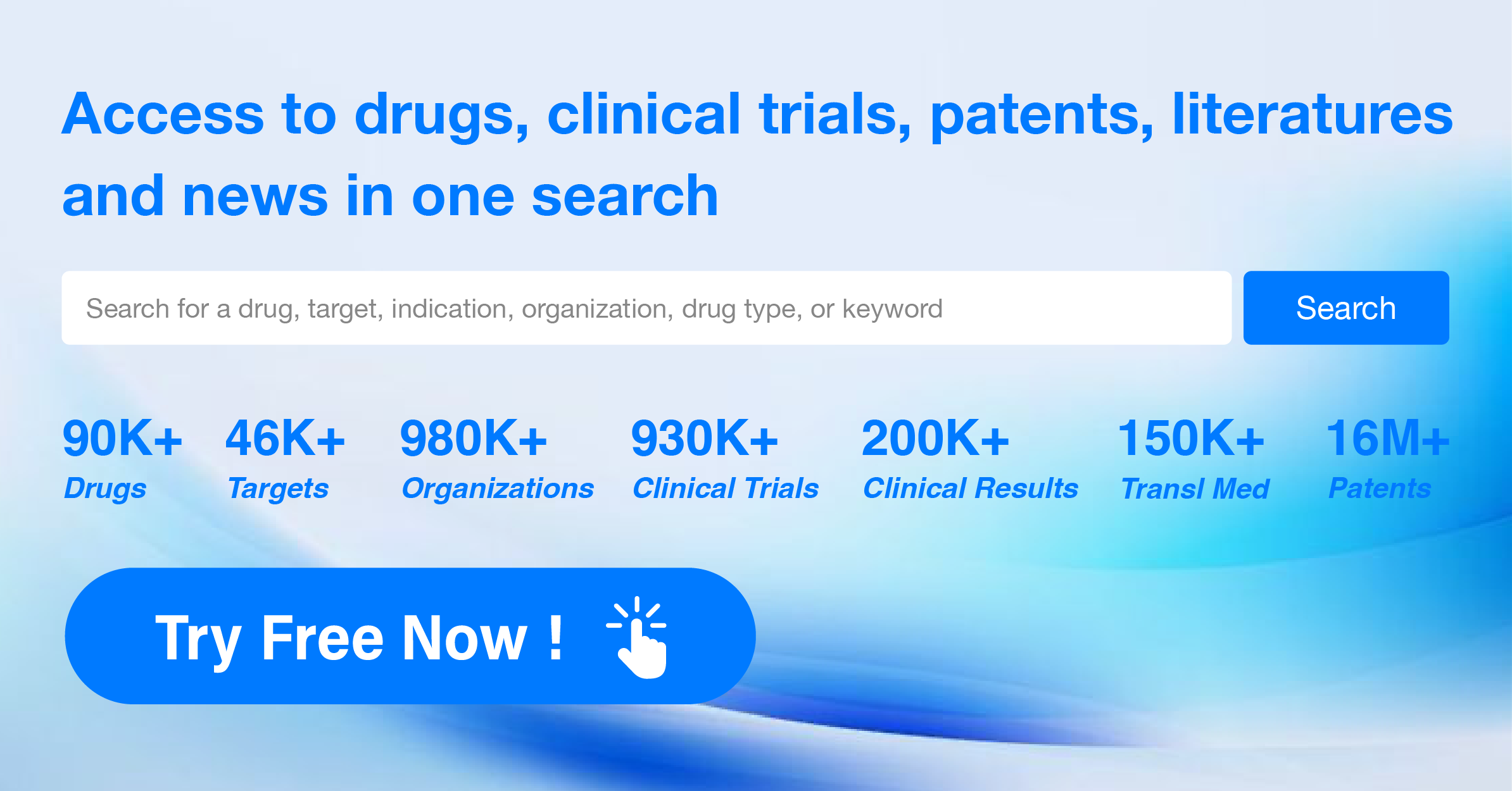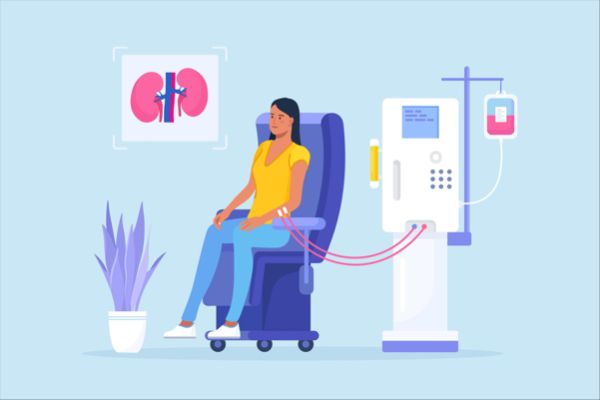Pharma Frontiers: Daily Digest of Global Pharmaceutical News – Jul 17
1.Amgen and UCB Jointly Developed Romosozumab, Files for Approval in China!
On July 16th, the Center for Drug Evaluation (CDE) of China’s National Medical Products Administration publicly announced the acceptance of the marketing application for the 3.1 category new drug Romosozumab (trade name Evenity) injection. Publicly available information reveals that romosozumab, a drug with a novel innovative mechanism for treating osteoporosis, is currently being developed in collaboration by Amgen and UCB. Romosozumab is a monoclonal antibody that functions by inhibiting the activity of sclerostin. According to a previous press release from Amgen, romosozumab is the world’s first approved sclerostin inhibitor, featuring a dual mechanism of action that promotes bone formation and inhibits bone resorption. This product was ranked first in the Cleveland Clinic’s Top 10 Medical Innovations of 2020. In January 2019, romosozumab was first approved in Japan for treating osteoporosis in patients at high risk of fractures. In April 2019, it was approved by the U.S. FDA for the treatment of osteoporosis in postmenopausal women at high fracture risk. According to earlier press releases from Amgen and UCB, romosozumab is the first approved therapy that elevates bone formation and reduces bone resorption, a dual-action mechanism for bone-building therapy. Compared with previous osteoporosis treatments, romosozumab rapidly increases bone density and reduces the incidence of fractures through its dual mechanism. Early clinical trials have shown that after 12 months of treatment, romosozumab-treated groups had a 12.7% increase in lumbar spine bone density and a 73% reduction in the risk of vertebral fractures compared to placebo. Additionally, compared to the oral bisphosphonate drug, Alendronate Sodium, after 12 months of treatment, romosozumab significantly decreased the incidence of new vertebral fractures by 37%.
2.Simcere Pharmaceutical Applies for Domestic Approval of New Insomnia Drug, Daridorexant
On July 16th, the website of the Center for Drug Evaluation (CDE) indicated that Simcere Pharmaceutical has filed for the domestic approval of Daridorexant hydrochloride tablets, intended for the treatment of insomnia. Daridorexant, developed by Idorsia Ltd, is a potential Best-in-Class innovative drug that targets both orexin receptor 1 (OX1R) and orexin receptor 2 (OX2R). Unlike traditional sedative-hypnotic drugs that promote sleep by sedating the brain, Daridorexant works by blocking the interaction between orexin neuropeptides (orexin 1 and orexin 2) and their receptors, aiding insomnia patients in falling asleep and maintaining sleep without next-day residual grogginess or sleepiness. In January 2022, Daridorexant hydrochloride tablets were approved in the United States under the trade name Quviviq, for the treatment of adult patients with insomnia characterized by difficulties with sleep onset and/or sleep maintenance. In November of the same year, Simcere Pharmaceutical reached an agreement with Idorsia, securing the rights to develop and commercialize Daridorexant in the Greater China region for a total transaction amount of $50 million. To date, Daridorexant hydrochloride tablets have been approved in the United States, United Kingdom, European Union, Switzerland, and Canada. On May 30th of this year, the phase III study of Daridorexant hydrochloride tablets for the treatment of insomnia in Chinese patients achieved its primary endpoint. Results demonstrated that taking one tablet of Daridorexant hydrochloride each night before sleep significantly improved multiple sleep parameters, including nighttime awakenings, compared to placebo, with a good safety and tolerability profile.
3.Boan Biotechnology Submits Application for Aflibercept Biosimilar
On July 16th, the CDE website revealed that Boan Biotechnology has filed for marketing approval of its intravitreal injection solution of Aflibercept. The original Aflibercept, a VEGFR-Fc fusion protein, was developed collaboratively by Regeneron Pharmaceuticals and Bayer AG and first approved for market in the United States in November 2011 under the trade name Eylea for the treatment of wet Age-Related Macular Degeneration (wAMD). In December 2017, Aflibercept was approved in China. Presently, Eylea is approved in the United States for five indications, including wAMD, Macular Edema following Retinal Vein Occlusion (RVO), Diabetic Macular Edema (DME), Diabetic Retinopathy (DR), and Retinopathy of Prematurity (ROP). In August 2023, Regeneron and Bayer introduced a high-dose version of Aflibercept (8mg), marketed as Eylea HD, addressing indications such as wAMD, DME, and DR. According to Regeneron's financial report, Eylea and Eylea HD generated a revenue of $9.3806 billion in 2023. As a leading product in the field of ophthalmology, Aflibercept has attracted numerous followers. Currently, there are five approved Aflibercept biosimilars globally from manufacturers including Biocon, CinnaGen, Coherus BioSciences, Samsung Biologics, and Qilu Pharmaceutical.
4.Revolution Medicines to Initiate Phase III Clinical Trial for KRAS Molecular Glue Treatment in Pancreatic Cancer
On July 15th, Revolution Medicines reported to investors that its RAS(ON) multi-selectivity inhibitor, RMC-6236, is set to enter a Phase III trial for pancreatic cancer following encouraging results from its Phase I study. The latest findings indicate a tumor reduction rate of up to 27% in patients with pancreatic ductal adenocarcinoma (PDAC). RMC-6236 is an orally administered tricomplex molecular glue that induces the formation of complexes between the intracellular molecular chaperone Cyclophilin A (CypA) and various RAS(ON) mutant subtypes, including the three most common oncogenic mutant proteins at mutation sites G12, G13, and Q61, thereby inhibiting tumor growth. The recent results specifically targeted 127 PDAC patients with administered doses of RMC-6236 ranging from 160mg to 300mg. In those previously treated KRAS G12X mutant patients assessed over 14 weeks and beyond, the objective response rate (ORR) was 20%, while the ORR analysis exceeding 20 weeks showed 27%. For the broader RAS mutant population (defined as patients with G12X, G13X, or Q61X PDAC), the ORRs were 21% and 26%, respectively. Revolution notes that, in comparison, the current second-line standards for clinical treatment of pancreatic cancer, specifically chemotherapy, demonstrate limited clinical benefits and significant toxicity, with an average ORR of approximately 9%. Revolution now plans to advance the 300mg dose of RMC-6236 into a Phase III clinical trial, comparing it against standard chemotherapy chosen by researchers in patients with metastatic PDAC in the second-line setting.
5.The injectable solution KN069 from Alphamab Biopharmaceuticals has been approved for clinical trials
On July 15th, the Center for Drug Evaluation (CDE) of China National Medical Products Administration officially announced that Alphamab Biopharmaceuticals has received clinical approval for its class 1 new drug, KN069 injectable solution, intended for weight management in obese patients or overweight patients with at least one comorbidity (such as hyperglycemia, hypertension, dyslipidemia, fatty liver, or obstructive sleep apnea syndrome). Public records show that this is a biologic innovation independently developed by Suzhou Alphamab Biopharmaceuticals, aimed at regulating human metabolism. Further public information indicates that KN069 is also under development for treating Metabolic (Dysfunction) Associated Steatohepatitis (MASH), formerly known as Non-Alcoholic Steatohepatitis (NASH). Alphamab previously entered a biopharmaceutical licensing deal with Amoytop Biotech, granting the latter the rights to develop KN069 and another innovative biologic for NASH indications in mainland China, including total equity payments up to 490 million RMB. According to Alphamab’s public documentation, the company is dedicated to the research and industrialization of antibody and large molecule protein drugs. As of June 26 of this year, the company has received clinical study authorizations for eight class 1 biologics and five biosimilars, including several products in the pipeline with differentiated features. Its products under development include subcutaneous injection targeting the tissue factor pathway inhibitor (TFPI) monoclonal antibody KN057 (for hemophilia), FXI single domain antibody Fc fusion protein injectable KN060 (for thrombosis prevention), and GLP-1 receptor agonist fusion protein injectable KN056, among others. The clinical approval of KN069 injectable solution signifies another biologic new drug entering the clinical research phase for the company.
6.Bioray Laboratories' Universal CAR-T Therapy Featured in "Cell" Journal
On July 16, Bioray Laboratories, a company specializing in gene and cell therapy, announced that its collaborative development of the new generation allogeneic universal CAR-T therapy (TyU19) for the treatment of autoimmune diseases was formally published on July 15 in the international academic journal Cell. In this research, TyU19, targeted at CD19 antigen, is a universal allogeneic CAR-T cell therapy product developed by Bioray Laboratories, and has demonstrated significant efficacy and high safety in clinical trials. This TyU19 developed by Bioray Laboratories is an allogeneic universal CAR-T product. The press release from Bioray Laboratories indicated that TyU19 is an innovative UCAR-T product, which through multi-gene and selective gene editing strategies, not only effectively avoids the risk of graft-versus-host disease associated with allogeneic cell transplants but also overcomes a key technical barrier in the development of universal allogeneic CAR-T products: the patient's immune system's rejection of foreign cells. Ensuring the safety and effectiveness of the cell product base, it truly realizes the universalization of immune cell therapy products. Clinical studies have shown that this product can achieve rapid expansion and long-term maintenance in the patient's body without the need for deep lymphodepletion pre-treatment (lower than that required for autologous CAR-T), effectively eliminating CD19 positive target cells in the patient. In this study, the research team treated three patients with refractory autoimmune diseases using Bioray Laboratories' UCAR-T product TyU19, including one case of immune-mediated necrotizing myositis (IMNM) and two cases of systemic sclerosis (SSc).
7.Orum Therapeutics announces a collaboration agreement with Vertex to develop three antibody-drug conjugates
Orum Therapeutics has announced a collaboration agreement with Vertex to develop up to three antibody-conjugate degraders (DACs). Under the terms of the agreement, Vertex will make an upfront payment of $15 million, with milestone payments of $310 million per project, totaling up to $945 million. Orum Therapeutics' TPD technology involves coupling antibodies with PORTAC molecules, combining targeted antibody delivery with the PROTAC's function of degrading intracellular target proteins. This design allows DACs to be applied to a broader range of therapeutic areas, including oncology and non-oncology indications. On November 6, 2023, Bristol-Myers Squibb introduced Orum Therapeutics' CD33 antibody-conjugated GSPT1 degrader project ORM-6151, with an upfront payment of $100 million and a total transaction value of $180 million. This marks the second major collaboration around DAC for Orum Therapeutics. In addition, in September 2023, Nurix announced a collaboration agreement with Seagen to develop multiple antibody-conjugate degrader (DAC) drugs. In December 2023, Merck entered into a collaboration agreement with C4 Therapeutics to develop a new generation of antibody-conjugate degraders (DACs).
How to obtain the latest research advancements in the field of biopharmaceuticals?
In the Synapse database, you can keep abreast of the latest research and development advances in drugs, targets, indications, organizations, etc., anywhere and anytime, on a daily or weekly basis. Click on the image below to embark on a brand new journey of drug discovery!




